Inbound email routing
Set up inbound email routing to receive your incoming emails and integrate them into your application to automate your workflows
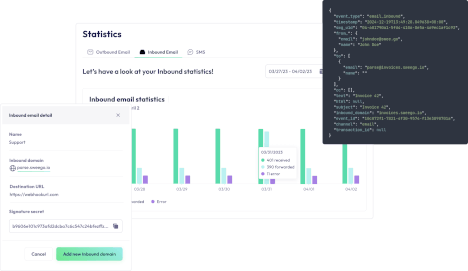
Automate, analyse and route your incoming emails easily
Set up two-way email communications directly in your applications
Create conversations with your users
Let your users reply to you or simply send emails to your app via JSON.
Use any address and our Catchall will take care of the rest.
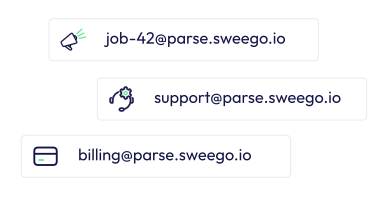
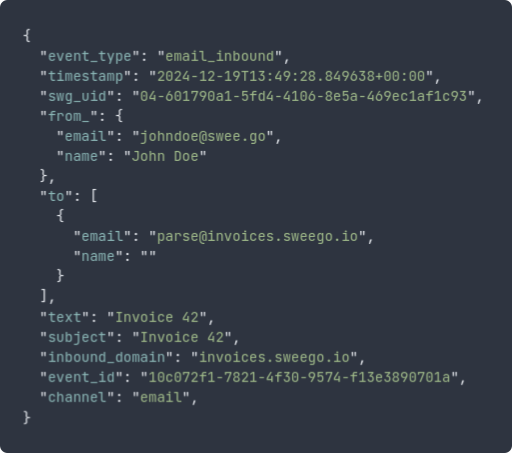
Your emails in JSON
Parsing emails yourself can be complex and time-consuming… We analyse all your incoming emails on your Inbound email domain and send them to you via webhook in JSON format.
Detailed logs
- Real-time logs
- Analyse in detail every email received and sent via webhook
- Use our filters to analyse current or past events
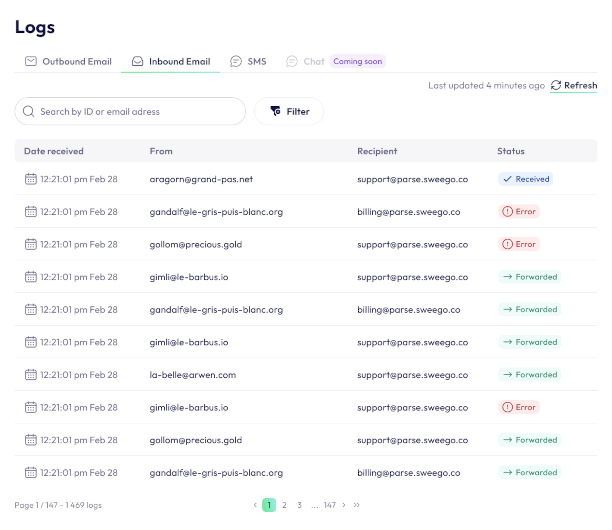
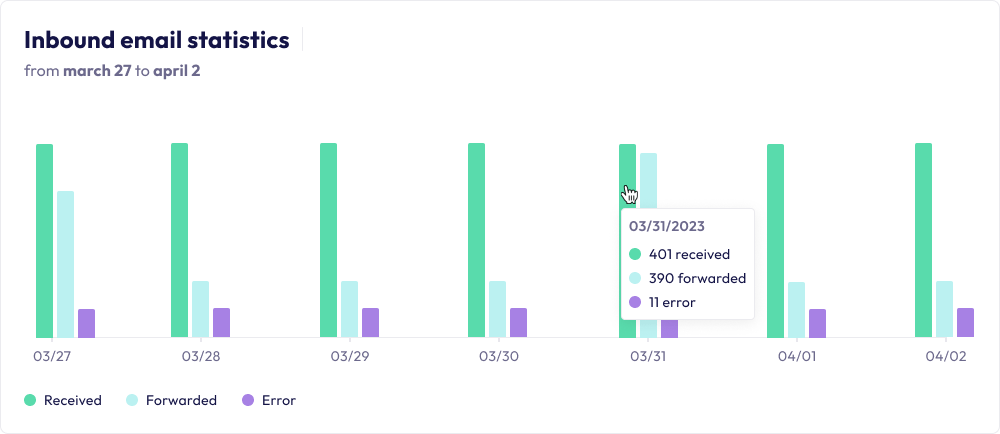
Statistics for your incoming emails
Control the routing of your incoming emails.
Filter by domain to get to the heart of the matter and find out which mailboxes are being used to receive emails. You can track responses on your webhook endpoints at a glance.
Manage your inbound email routing via API
Manage your incoming email routings via the API just as you would via the interface.
You can list, add, update or delete them.
 EN
EN FR
FR